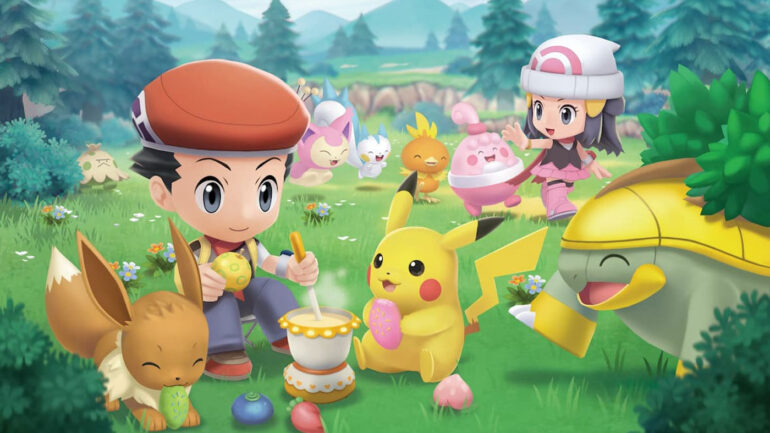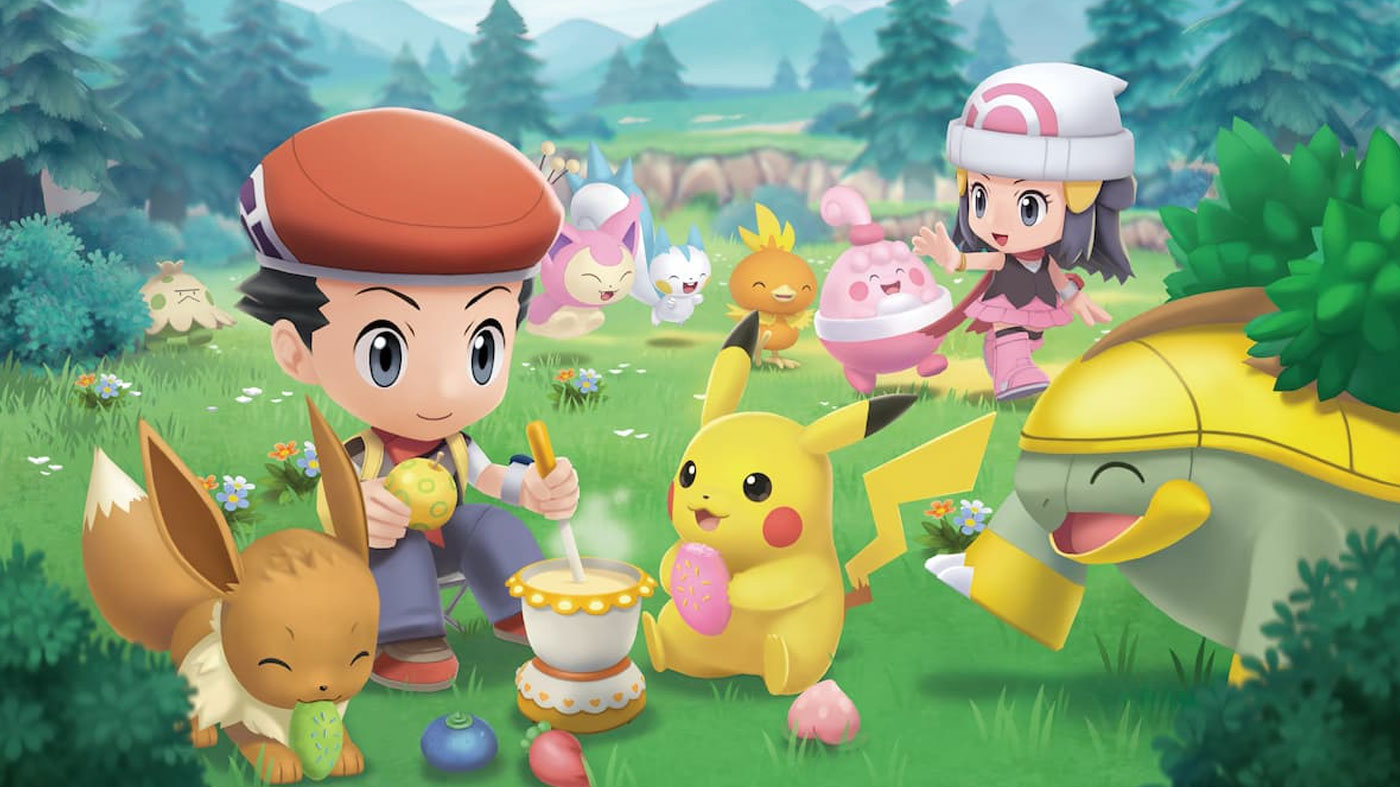Majority of the remakes and remasters that release today don’t hold a lot of weight with me as I am a younger gamer that likely didn’t play the originals, but that was definitely not the case with Pokémon Diamond & Pearl. As my first foray into the Pokémon franchise, Diamond and Pearl are games that are near and dear to my heart. To say I was nervous about Brilliant Diamond and Shining Pearl would be an understatement, but after a few hours with Shining Pearl, all of those worries washed away as I was swept up in a nostalgia fueled trip back to the Sinnoh region that reminded me of why I fell in love with this franchise in the first place. It’s not without its missteps, but Brilliant Diamond and Shining Pearl are bound to please long-time fans, and offer a traditional Pokémon experience for newcomers, making for one of the best offerings the franchise has had for a long time.
Brilliant Diamond and Shining Pearl are set in the Sinnoh region, an ancient, mountainous region that holds stark significance within the world of Pokémon. Ruins scatter the lands, Mount Coronet looms in the distance, and town elders are constantly referencing higher powers, evolution, and the creation of all Pokémon. There’s a palpable mysticism present across all aspects of Sinnoh as a region and that’s undoubtedly what makes it so memorable.
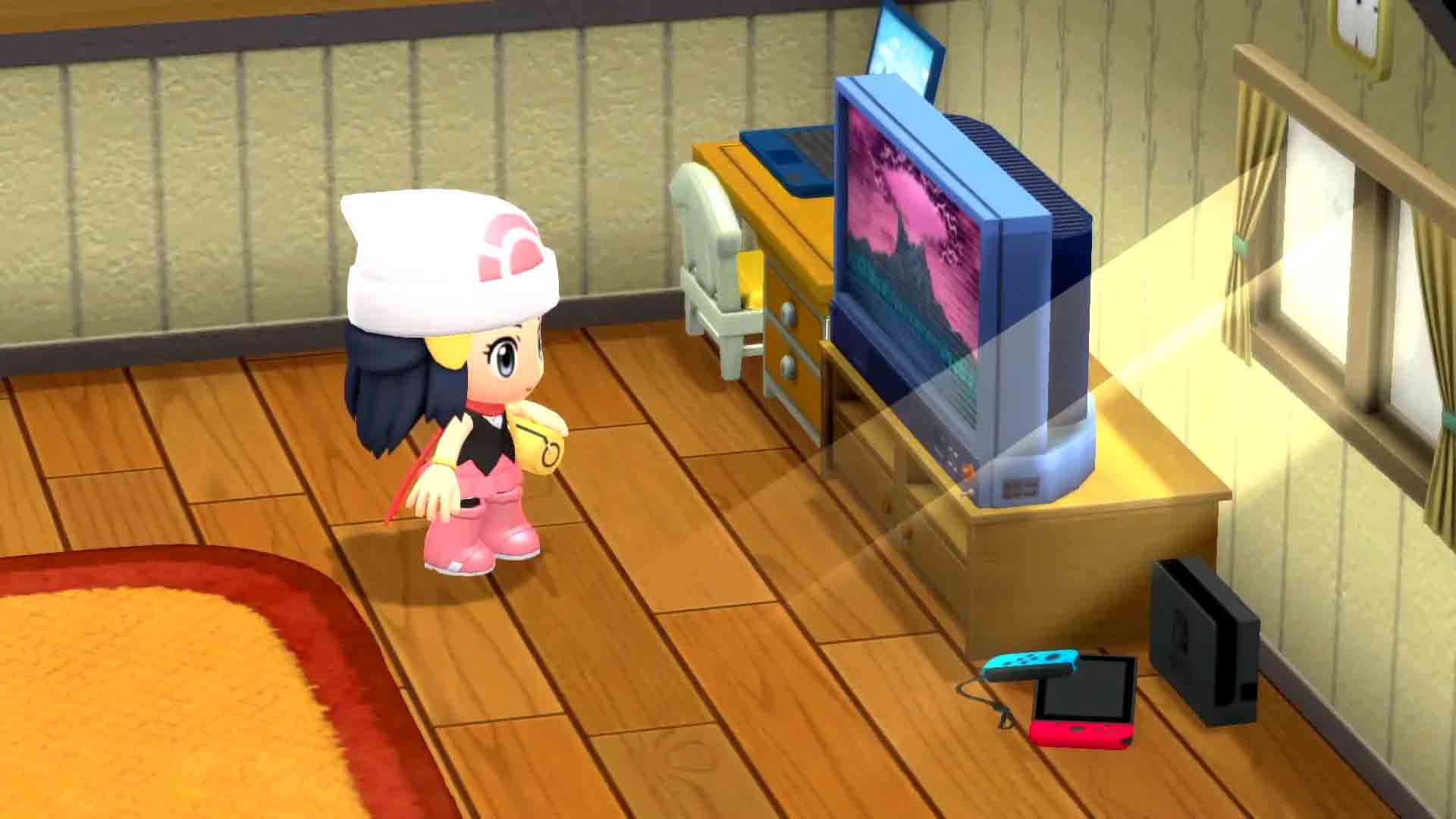
Not all is calm in the Sinnoh region, though, you’ll often run into Team Galactic during your journey to collect all eight gym badges and they’re almost always up to no good. Their leader, Cyrus, wants to exploit the powers of legendary Pokémon to rebuild the universe in his image with him at the center of it. They’re far from the most interesting antagonistic force we’ve seen in a Pokémon game, but I found they’ve always given off a campy Saturday morning cartoon vibe that’s quite entertaining. It’s an interesting enough plot that mainly serves as set dressing for the gameplay, but the environmental story telling is where the stories of Sinnoh are really told.
One of the best parts of playing a new Pokémon game is picking and choosing who you want to bring with you on your journey to the top, and Sinnoh has a great selection of potential party members. From the excellent choice of starters to now series staples like Garchomp and Lucario, it feels like you can never make a bad decision. This is further reinforced by the new HM system, where using HMs simply calls on a Pokémon from the wild or in your PC, meaning you’ll no longer have to dedicate a party slot to the likes of Bidoof just so you can use Cut and Rock Smash. It’s a simple, yet welcome change that adds a little extra flexibility to teambuilding.
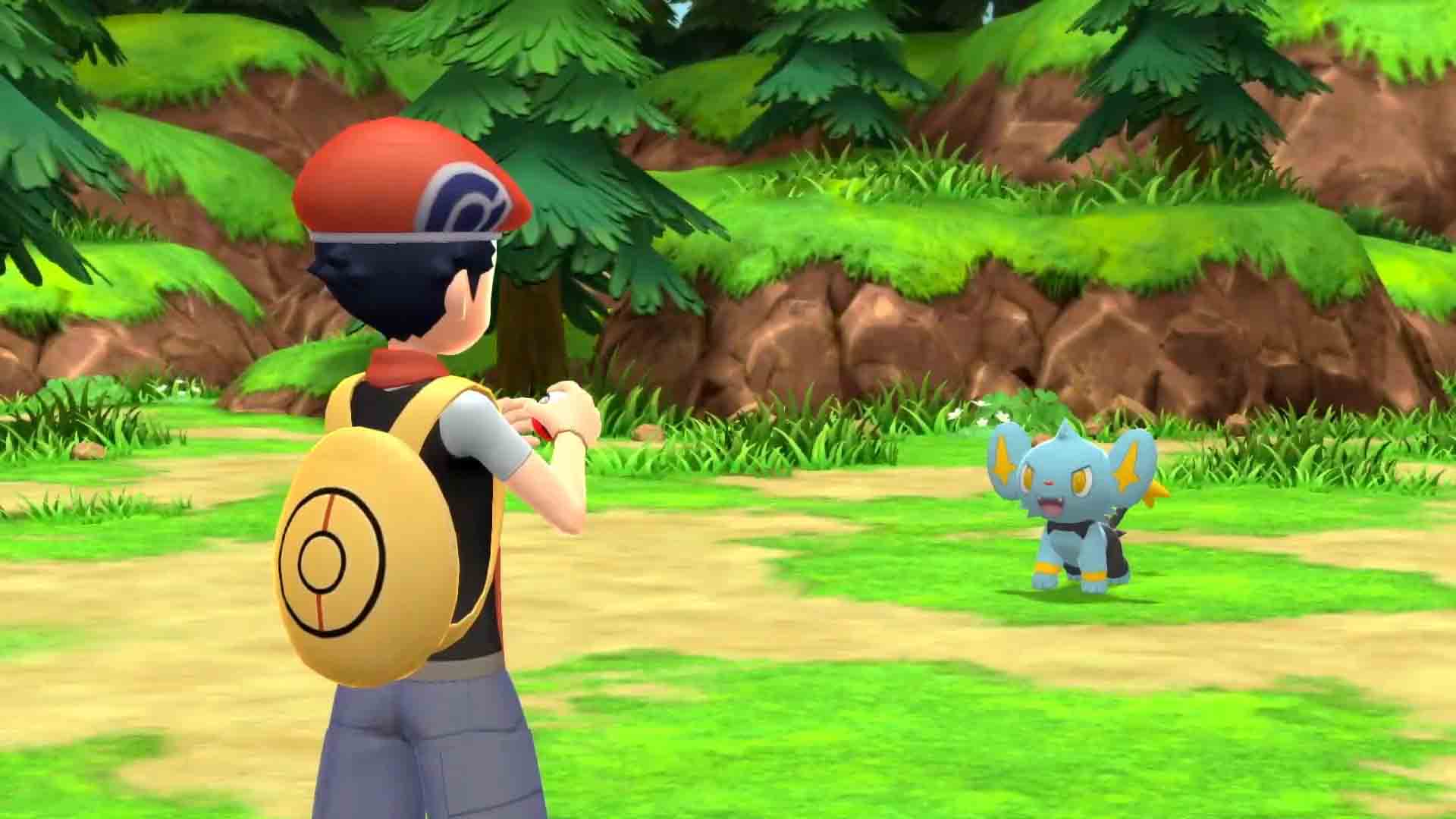
The core gameplay loop is mostly unchanged here, you move from town to town, battling trainers, catching Pokémon, taking on gyms, and thwarting Team Galactic’s plans when the need arises. While it’s a tried-and-true formula, it feels refreshing to return to a format that we haven’t seen for a long, long time. While Gamefreak have been trying to push the series forward with new ideas, Brilliant Diamond and Shining Pearl almost feel like comfort food, instantly familiar to long time fans while still holding appeal for series newcomers. Aside from the introduction of Ramanas Park, the post-game is also relatively untouched, which unfortunately means that these versions lack the Battle Frontier, and is devoid of any other content exclusive to Platinum, which is a weird choice considering past remakes always included stuff from those third games.
Difficulty has always been a weird point for Pokémon because it’s almost never consistent. I’ve always seen the DS era of Pokémon as quite challenging in comparison to the easier recent entries. I regularly struggled with Diamond and Pearl as a kid, but I found Brilliant Diamond and Shining Pearl to be a cakewalk. I had no trouble right up until the end of the game, which is no doubt due to the party wide EXP Share that’s always on. I’m all for accessibility for players who need it, but it would’ve been nice to be able to disable or at least revert the EXP Share to its original functionality.
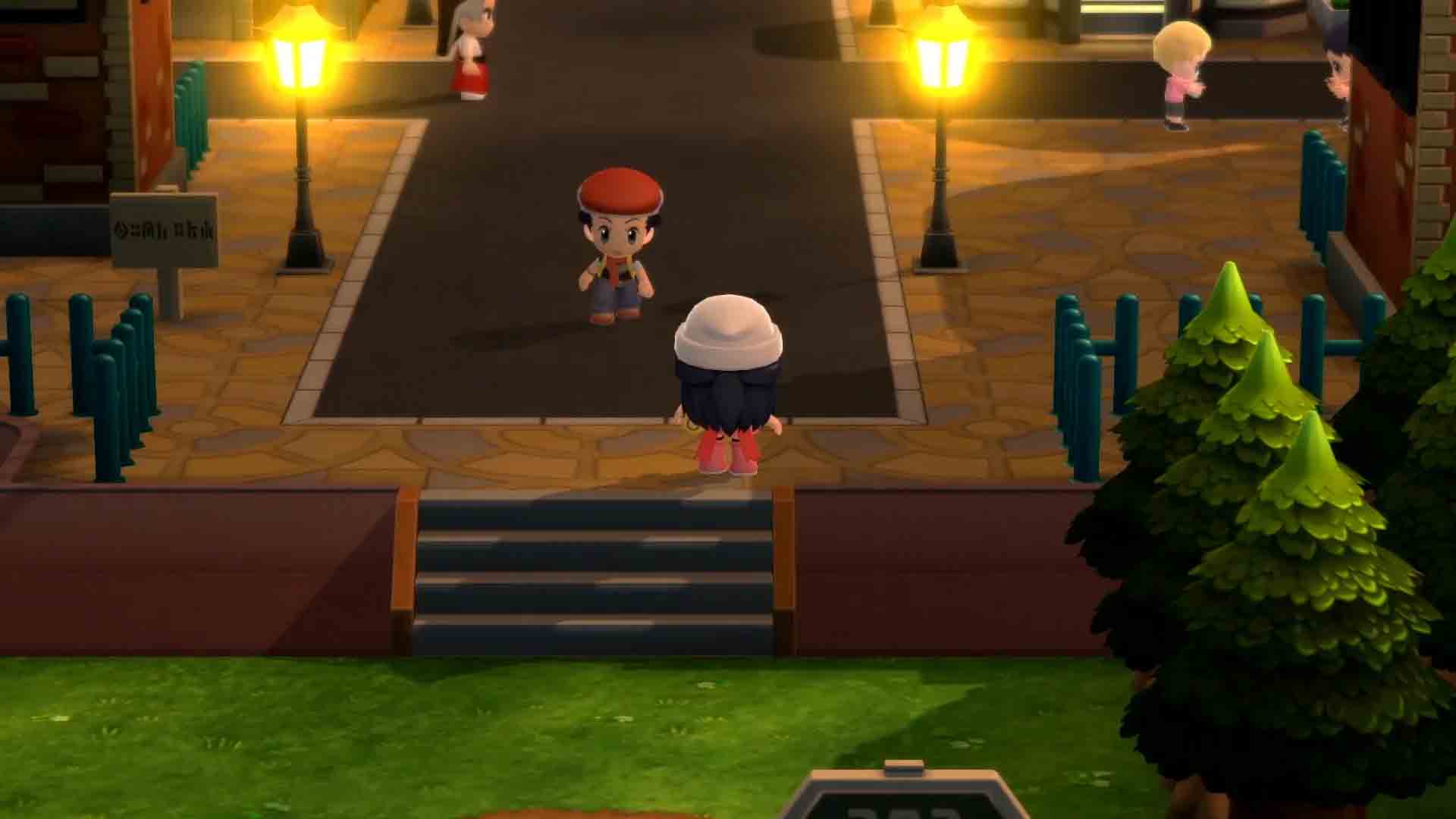 biggest new additions to Brilliant Diamond and Shining Pearl, and they’re inextricably linked when you reach post-game. Early on in your journey, you’ll unlock the ability to visit The Grand Underground; a vast network of tunnels underneath Sinnoh, where you can setup your own secret base, mine, and catch Pokémon. Mining sees you engaging in the same mini game as the originals, slowly tapping away at the screen to unearth valuable items and Spheres that can be used to trade for TMs and other hard to get goodies. The Pokémon you’ll find are almost always rarer than what you’ll find on the surface, and I quickly got addicted to visiting each room of The Grand Underground to see what I could catch. When you mine, you can also find statues of certain Pokémon, and placing these statues in your base will increase the chances of other Pokémon of the same type appearing. It’s a consistently rewarding and streamlined process that kept me coming back, and then I unlocked Ramanas Park.
biggest new additions to Brilliant Diamond and Shining Pearl, and they’re inextricably linked when you reach post-game. Early on in your journey, you’ll unlock the ability to visit The Grand Underground; a vast network of tunnels underneath Sinnoh, where you can setup your own secret base, mine, and catch Pokémon. Mining sees you engaging in the same mini game as the originals, slowly tapping away at the screen to unearth valuable items and Spheres that can be used to trade for TMs and other hard to get goodies. The Pokémon you’ll find are almost always rarer than what you’ll find on the surface, and I quickly got addicted to visiting each room of The Grand Underground to see what I could catch. When you mine, you can also find statues of certain Pokémon, and placing these statues in your base will increase the chances of other Pokémon of the same type appearing. It’s a consistently rewarding and streamlined process that kept me coming back, and then I unlocked Ramanas Park.
Unlocking Ramanas Park is done by filling all entries in the Sinnoh Regional Pokédex and serves as a means for you to catch legendary Pokémon from different regions. Once unlocked, you can mine for Mysterious Shards in The Grand Underground, which can then be traded for slates. These one time use slates are used to trigger encounters with these legendary Pokémon of the past which makes for an immediately satisfying and addictive post-game loop of exploring The Grand Underground, returning to Ramanas Park, catching a legendary, rinse and repeat. It’s this back and forth that feels like a natural extension of The Underground in the original game, and it captures that same magic that I felt as a kid, which I think is a remarkable achievement.
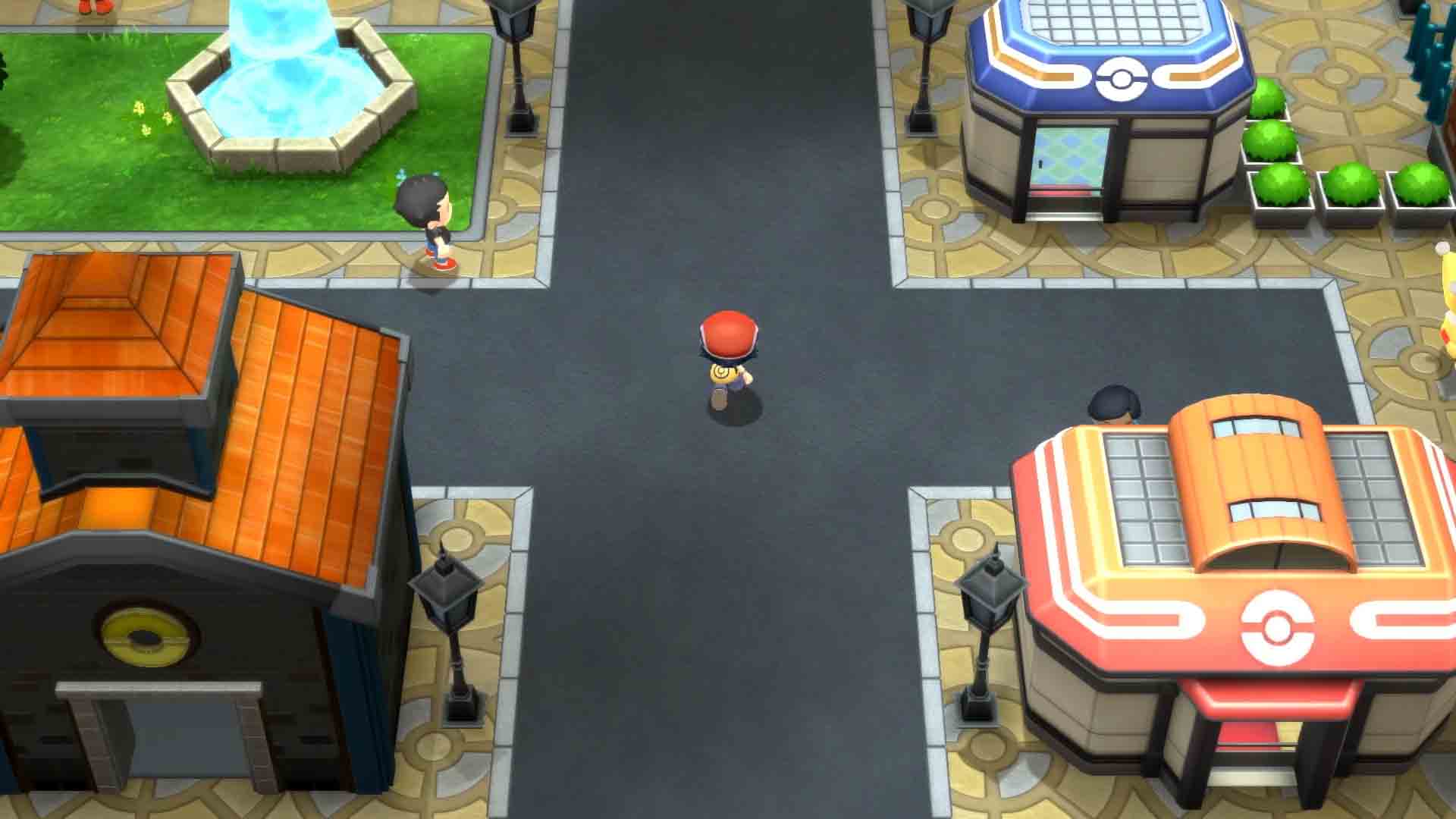
All the little exclusive things you remember from generation 4 are here as well. The Pokétch can be brought up by tapping R, which has all of the same tools and widgets as you remember. Pastoria City Marsh, the Contest Hall in Hearthome City, and the ability to make Poffins for your Pokémon are all here in full force, giving you plenty of optional content to engage with if you so wish. One small new thing included in Brilliant Diamond and Shining Pearl are Ball Capsules. Ball Capsules allow you to place stickers on your Pokéballs, with little effects going off as you throw your partners into battle. It’s a very simple and cute system that has quite a deep level of customization to it and is a welcome addition to make your experience that little bit more personal. Needless to say, Sinnoh was and still is chock full of content to engage with and can no doubt keep you playing for hours on end if you want to experience everything it has to offer.
The most large-scale change, of course, comes in the form of the visual overhaul Brilliant Diamond and Shining Pearl bring to the Switch. I’ll admit that I wasn’t sold on the art style at first, and to be honest, I don’t know what I was expecting out of it. As more trailers and footage started coming out, I warmed up to it quickly, and after playing the game for roughly 20 hours on the OLED, I’m very happy with how it turned out. This new art tyle really captures the original chibi aesthetics of Diamond and Pearl, mixed with high resolution and mostly detailed Pokémon models found in other recent entries. Exploring the world is a joy – from the always bustling Jubilife City to the quiet and quaint Floarama Town, there’s always something new around the corner, and I always looked forward to seeing how my favorite towns had translated to the Switch.
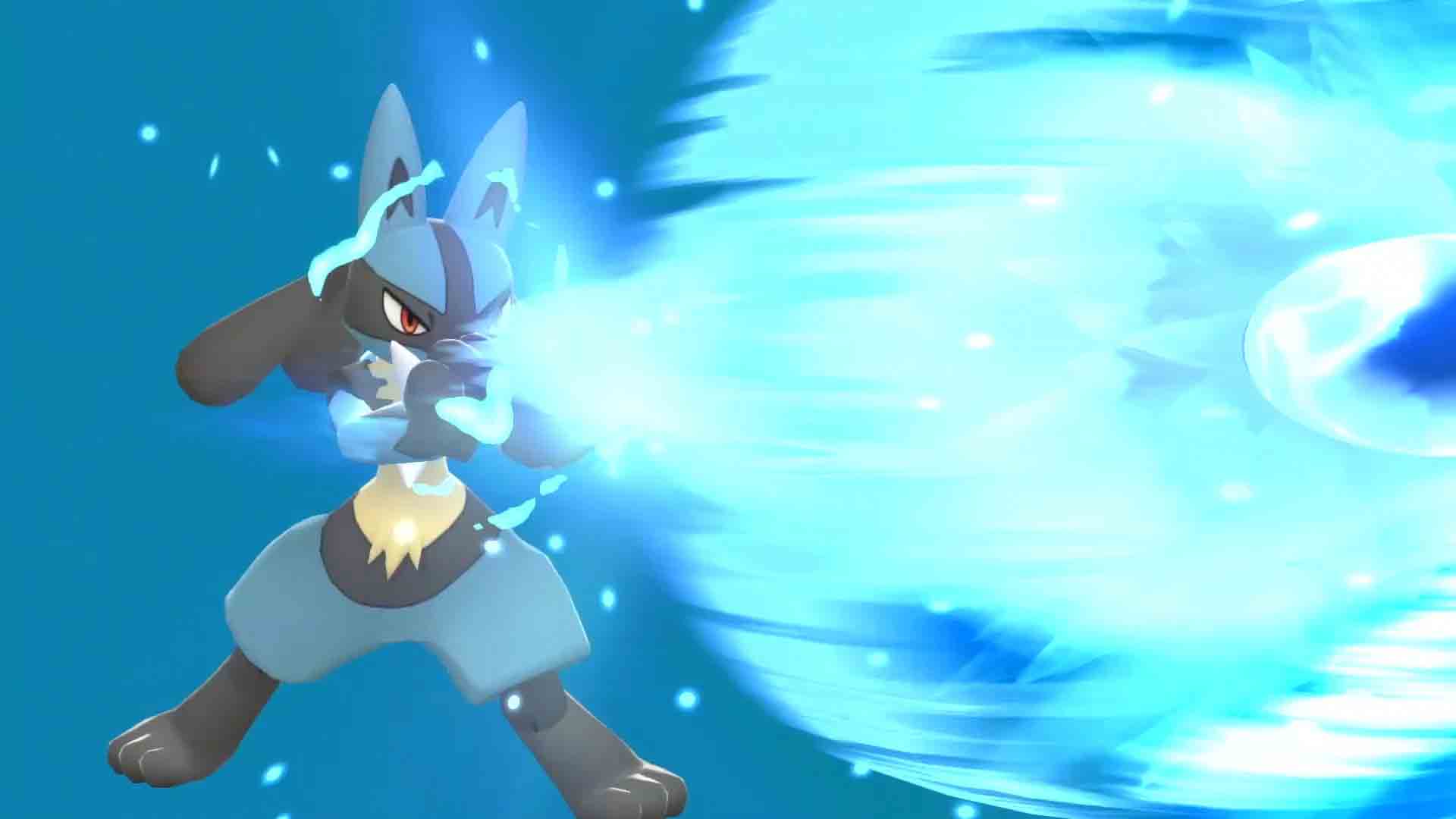
The real standout for me, was actually the battle arenas. When outdoor and exploring routes, it really feels like you’re battling it out in the wild as Mount Coronet hangs overhead. Team Galactic battles take place in a suitably space-like arena filled with hazy purples and blacks that lend their encounters an otherworldly feel. The best that Brilliant Diamond and Shining Pearl have to offer in this regard are undoubtedly the gym battles, but I won’t spoil anything here, because they’re best experienced blind. Couple this with the excellent soundtrack, and the end result is a remake that captures the essence and aesthetics of the originals, with the kind of polish and presentation you’d expect from a first party Nintendo game. Not everything is perfect, though. Some Pokémon fair better than others in the transition to this kind of art style, and some of the battle animations can look pretty underwhelming at points.


